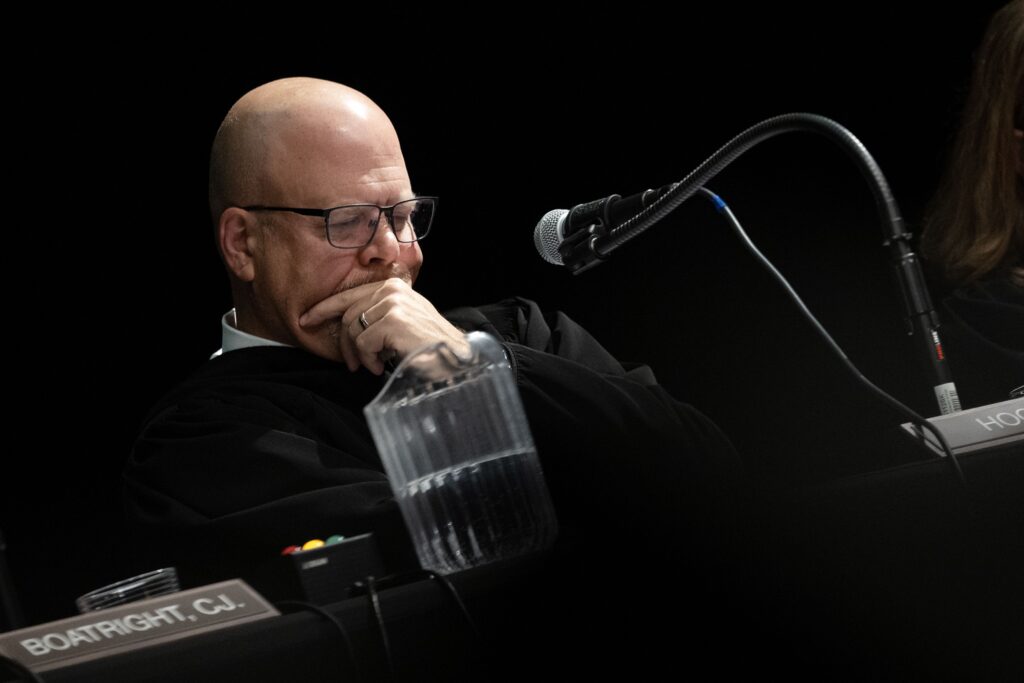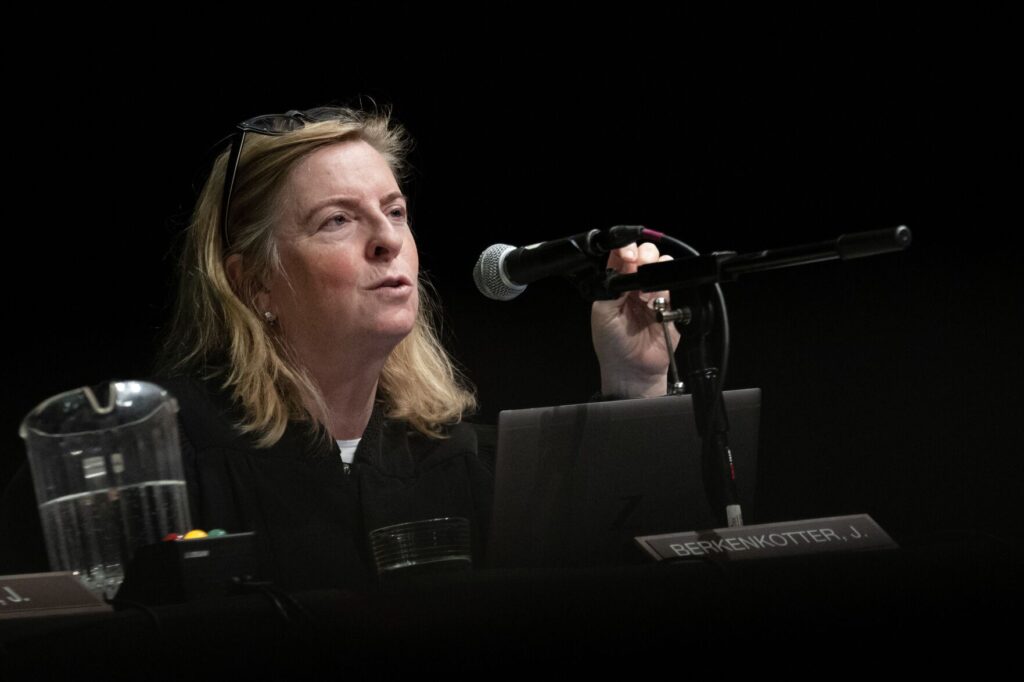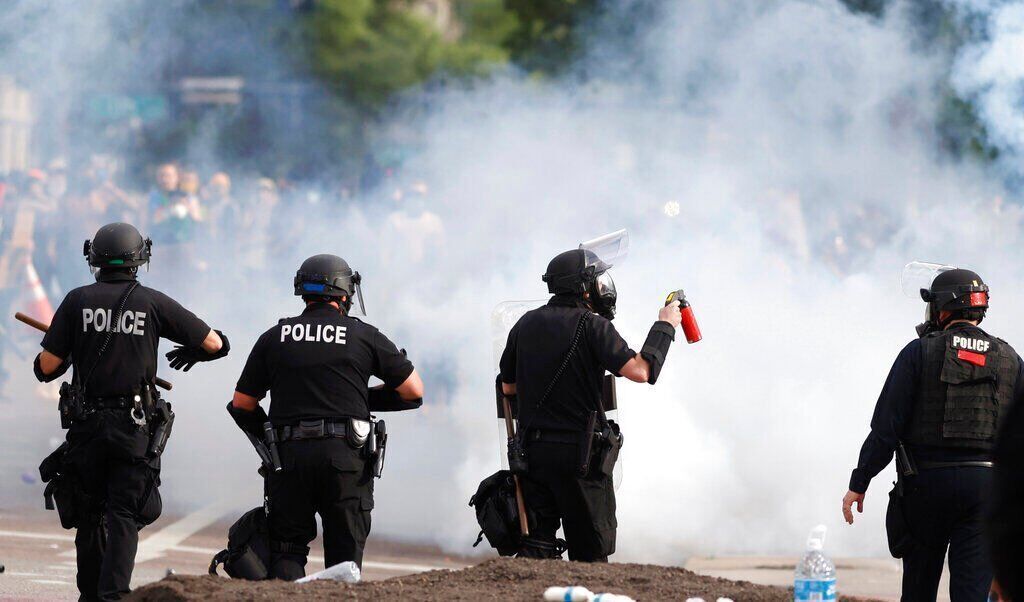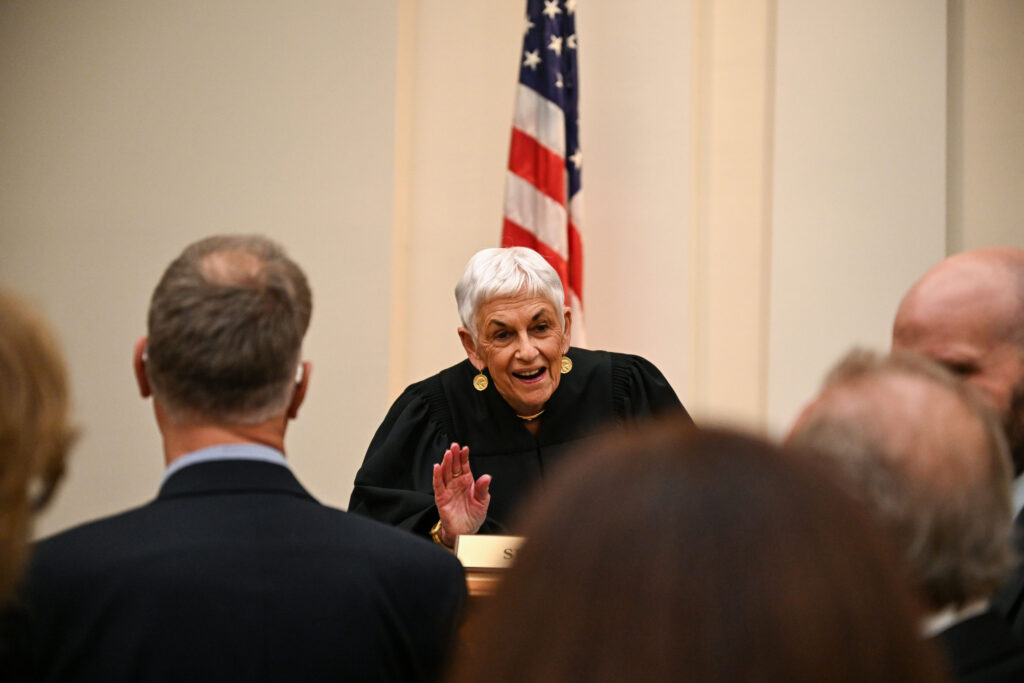Intervention v. punishment: Justice William Hood speaks about assistance to struggling lawyers
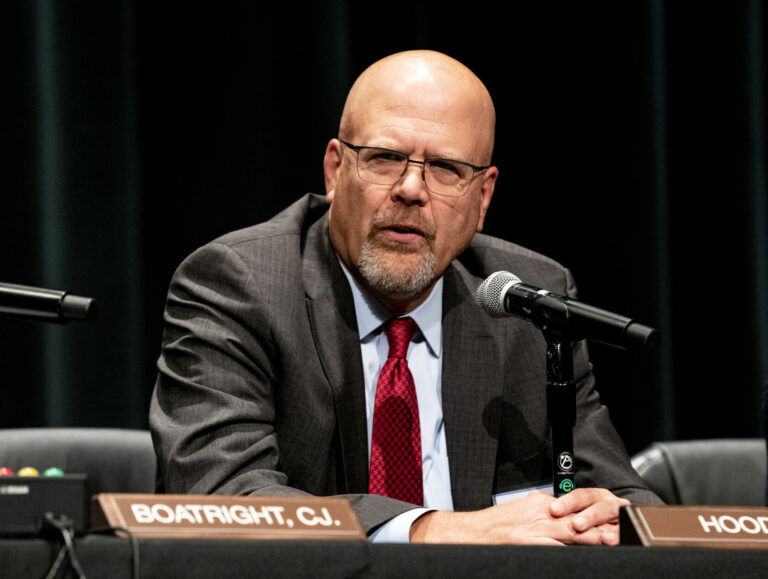
A member of the Colorado Supreme Court spoke to attorneys on Thursday about the ways in which lawyers and judges have a duty to intervene when they notice their colleagues struggling to meet their professional obligations.
“I tried to search back in my own memory banks. I can remember being a young lawyer and seeing a senior judge exhibit, probably, symptoms of cognitive decline. Sometimes, it’s hard to distinguish between that and lack of preparation, right?” said Justice William W. Hood III. “But typically as a younger lawyer, I don’t think it even occurred to me at the time, ‘This is behavior I need to report.’”
He added, “I don’t think we were having these conversations as much as we probably should have.”
Hood spoke at the Colorado Bar Association’s headquarters as part of a daylong symposium about wellbeing in the legal profession.
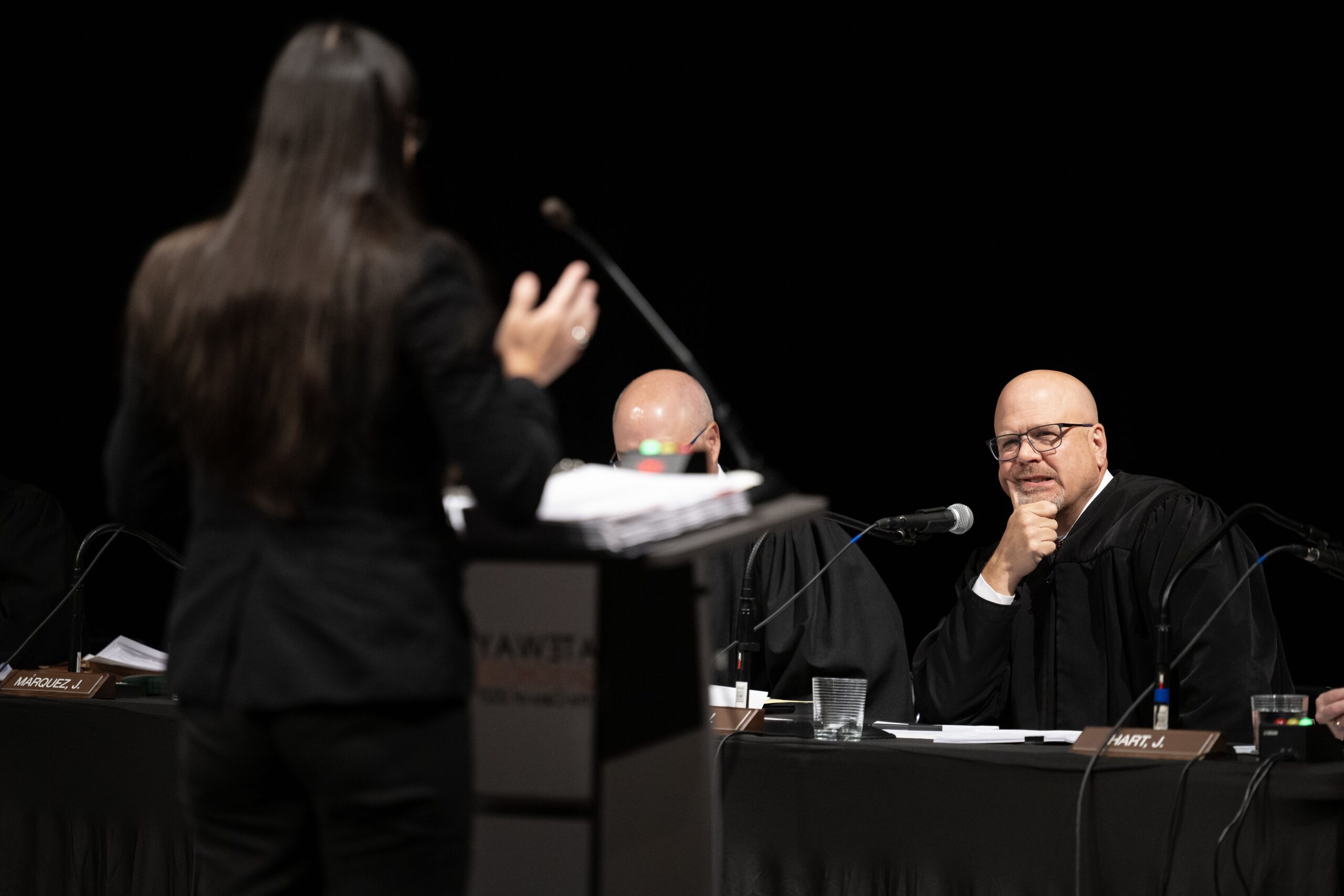
Alongside Hood was Elizabeth Lembo, executive director of the Colorado Lawyer Assistance Program. The Supreme Court created COLAP in 2011 as a confidential initiative to consult with and provide support to lawyers “experiencing issues that negatively impact their career, ability to practice, or well-being.”
“Sometimes, folks call us because they’re not feeling quite right and they’re not sure why,” she said. Lawyers may also be hesitant to act when they see someone else struggling because they do not know what to say or are “worried about making it worse.”
“I would really strongly discourage using somebody’s professional reputation, potential damage to their reputation, as a motive,” Lembo cautioned, such as warning the person to “get it together.”
“It drives folks further into isolation, further into maladaptive coping, if they’re concerned their community is noticing and talking about them,” she added.
“How often are they combative” with COLAP, asked Hood.
Lembo said that does happen, but her providers use “rolling with resistance” techniques to support combative attorneys.
J.P. Moore of the Office of Attorney Regulation Counsel noted the Colorado Rules of Professional Conduct require lawyers to report their peers, including judges and licensed legal paraprofessionals, when they know someone has violated their professional duties. The obligation applies only when the behavior raises a “substantial” question about the lawyer’s “honesty, trustworthiness or fitness.”
“One of the misconceptions I think people have is that it gets reported to OARC and it’s about discipline, discipline, discipline,” said Moore. “There are lots of cases that take a different track.”
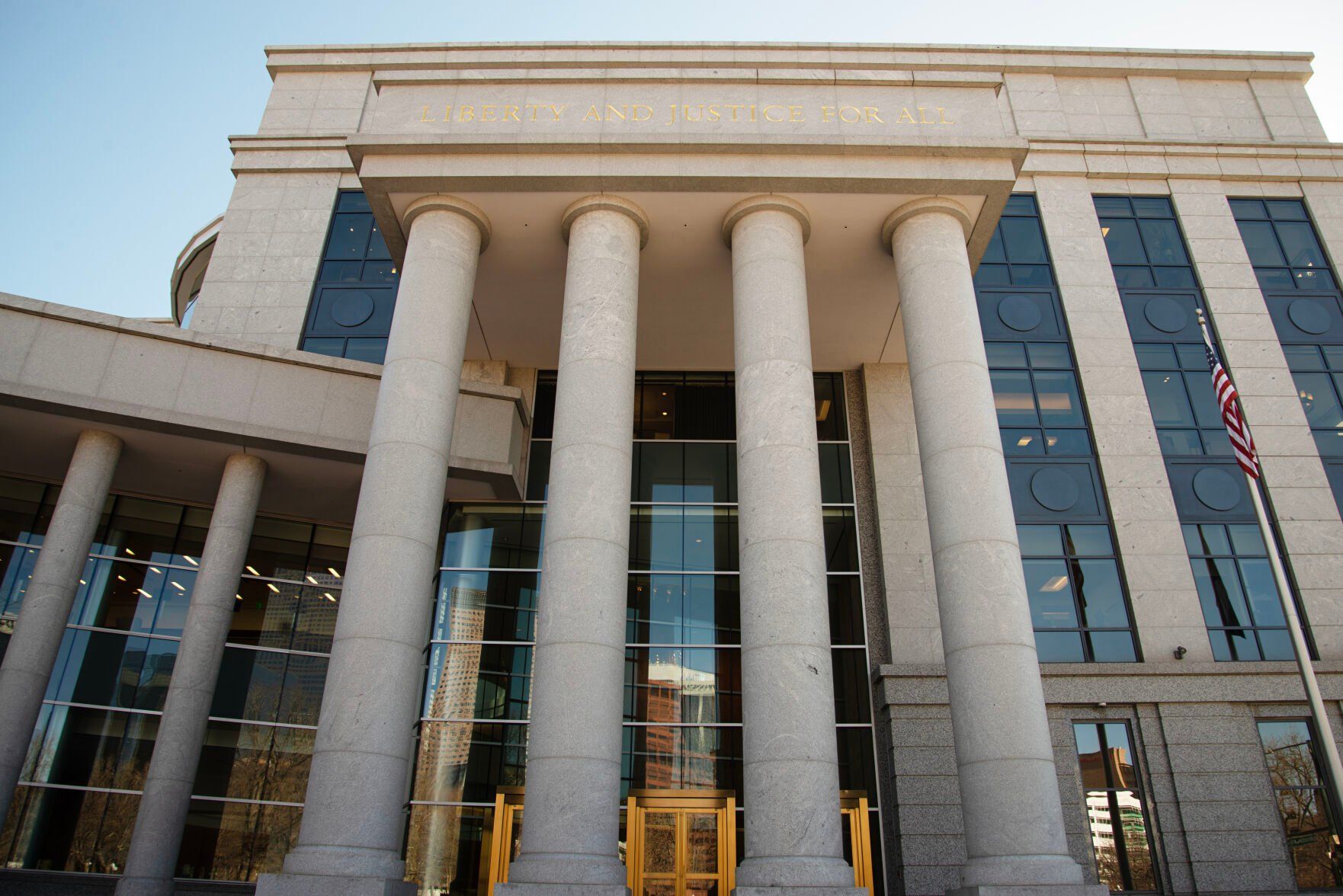
He elaborated that relatively few requests for investigation wind up headed to a regulatory trial, and there are diversionary tools the office can use to help a struggling lawyer.
“We, too, are not only looking at protecting the public,” Moore said. “Part of our job and part of our hope — we want lawyers to be well.”
Hood said that during his time as a Denver District Court judge and a Supreme Court justice, he has not personally needed COLAP’s services. However, he also has the obligation to report certain conduct that crosses the line.
“Sometimes, even those of us on the bench have behavioral health issues. We’re all vulnerable to that,” he said.
Hood raised the example of judges or attorneys exhibiting symptoms of intoxication on the job.
“So, what do we do with that? What do we do when we’re not certain and we’re reluctant, particularly when it’s a judge, to reach out and report that behavior?” he asked.
In that instance, the rules require judges to take “appropriate action,” which could include a referral to programs like COLAP.
“When I was a district court judge, my initial instinct might have been to talk to the chief judge,” he said. “If I saw someone who was plainly intoxicated on the bench among my colleagues, I would probably have to report that to judicial discipline directly.”
Disciplinary authorities are “sensitive to concerns” about cognitive decline or disability, Hood added, and look for ways to provide treatment instead of punishment.
Although the rules governing judicial discipline are evolving, Hood cautioned, due to the passage of constitutional Amendment H last year, he did not believe the handling of incapacitated judges would change under the new system.
“Sometimes, people are happy to hear someone cared enough to call on their behalf,” said Lembo, the COLAP director. “Those are always the wins.”


